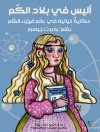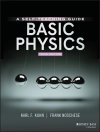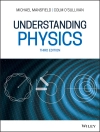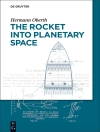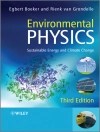Seen from “inside the IAU, ” this book tells the in-depth story of a major crisis in which China “divorced” from the International Astronomical Union in 1960 as a protest against the admission of Taiwan. This happened to all the scientific unions at the same time, and to the Olympic Games, which, unexpectedly, would serve as a laboratory for the “reconciliation” which took place following the re-opening of China to the world 20 years later.
The so-called “China conflict” is the most important crisis in the post-WWII history of the IAU. Yet, many details about this conflict and its links to broader geopolitical events have long remained unsettled, obscure, or altogether absent. In particular, the book describes for the first time the “separation” period, which covered the Cultural Revolution, and in which the IAU made desperate official efforts to reach out to China, while some groups of Western and Chinese astronomers managed to keep contact at times. On the occasion of the IAU Centenary celebrations in 2019, the book revisits this painful succession of events using unpublished documents from the IAU Archives and the International Council of Scientific Unions. The book also contains supplementary typescripts of selected handwritten correspondences and the full translation of key original Chinese documents unknown to readers outside China.
What emerges is a complex and fascinating story of human relations and science diplomacy under the shadow of the Cold War. Readers will learn how the 20-year “China conflict” as lived by astronomers and scientists is important not only for the history of the IAU, but also for the history of contemporary China.
“This book is full of so many original documents of the IAU office, very reliable and good to open to the public readers.” Shuhua Ye, Shanghai Observatory (IAU Vice-President, 1988-1994)
This book is a companion book to ‘Astronomers as Diplomats, ‘ published at the same time in the same series.
表中的内容
– 1. Introduction and Outline. – 2. Historical and Geopolitical Background. – 3. The Divorce. – 4. China vs. Taiwan: A General Problem for Scientific Unions. – 5. Living in Separate Worlds. – 6. The Question of Taiwan: Pressure from UNESCO. – 7. The Uncertain Road to Reconciliation. – 8. Conclusions. – 9. Epilogue. – Appendix A: A “Personal Account” by D. Sadler (1976) of the Admission of Taiwan to the IAU. – Appendix B: IAU Archival Documents (1958–1979). – Appendix C: A Visit to China Astronomy in 1979. – Appendix D: Under One Starry Sky—The History of the International Astronomy Union (IAU).
关于作者
Thierry Montmerle has been General Secretary of the IAU from 2012 to 2015. In the framework of the centenary celebrations of the creation of the IAU and four other International Unions in 1919, he and co-Editor Danielle Fauque have edited a companion book entitled “Astronomers as Diplomats”, in the Historical and Cultural Astronomy Series. Montmerle had previously written two papers on the history of the IAU in the ‘IAU Centenary Symposium’ held during the IAU General Assembly in Vienna (2018). During his long career in astrophysics since his Ph D (1975), he has edited many proceedings of international conferences (including the IAU General Assembly in Honolulu, 2015, edited by Cambridge University Press), and also contributed to books edited by Springer (Young Sun, Early Earth, and the Origin of Life, 2012; Encyclopedia of Astrobiology, 2015+), as well as popularizing books in astronomy.
Yi Zhou is a seasoned journalist/translator/researcher based in Paris, France, and a curious observer of current world events. He is passionate about contemporary history and investigative journalism. He has worked for the Chinese service of French public radio station, Radio France Internationale (RFI), since 2015. Previously, he finished his high school in Columbus, Ohio, USA. He went on studying in France at the Institut d’Etudes Politiques de Paris (“Sciences Po”) for both of his Bachelor’s and Master’s degree, specializing in political and social sciences. He obtained a Master’s degree in International Affairs and Development from the Paris School of International Affairs (PSIA) of Sciences Po. Coming from China and having studied in the USA, France and the Netherlands, this has given him a special set of understanding, skills and rare experience in dealing with cross regional and international political and social subjects.


